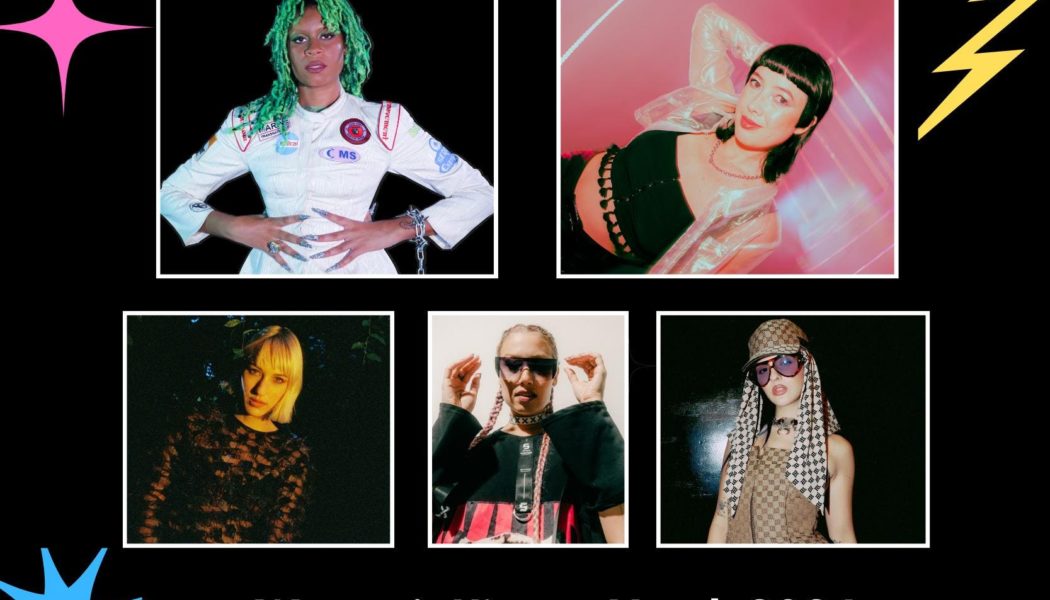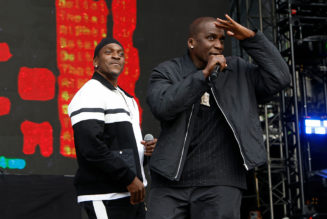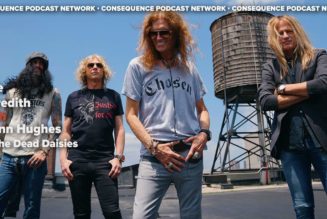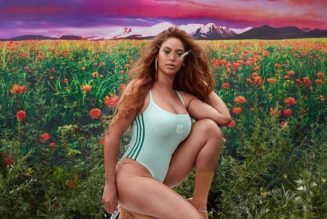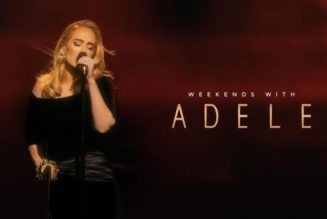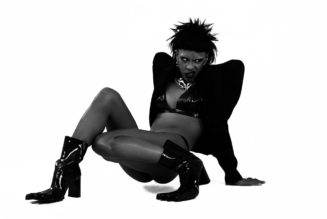
Google Women’s History Month quotes and you’ll be met with an abundance of noteworthy remarks by extraordinary women. From Ruth Bader Ginsburg to Eleanor Roosevelt, Amelia Earhart, Rosa Parks, Shirley Chisholm, Maya Angelou, Billie Jean King, Susan B. Anthony, Malala Yousafzai and more, women have been impacting U.S. history since the 1848 Seneca Falls Convention—and even before then.
Since 1987, the U.S. has been celebrating Women’s History Month in March to honor women’s contributions to history, culture and society. The National Women’s History Alliance designates a yearly theme for the honorary month, and 2024’s is Women Who Advocate for Equity, Diversity and Inclusion. This is defined as recognizing “women throughout the country who understand that, for a positive future, we need to eliminate bias and discrimination entirely from our lives and institutions,” the alliance’s website says.
One of the many ways women have influenced culture is through dance music. Notable pioneers include Wendy Carlos, Kym Mazelle, Annie Nightingale, DJ Minx, Jordana LeSense, SOPHIE, Smokin Jo and UNIIQU3. Some of the accolades held by these female-identifying vanguards include championing the advancement of women in the industry through radio and television, influencing the beginning stages of a genre, helping develop the first Moog Synthesizer and founding new styles of music.
Here, Forbes catches up with Aluna, Kito, mini bear, SITA and XIE on what Women’s History Month means to them, the current state of dance music for female-identifying artists, their view on what equality in the scene looks like and more.
Aluna.
Lisa Kocay: What does Women’s History Month mean to you?
Aluna: “This month changes for me every year. It used to be a time when I looked at other women standing up and being proud, but now I see it as a time of rebirth, a time to shed my old skin and embrace all I can be from what I’ve learned.”
Kito: “I love women, and I love celebrating women. So any chance to do that, I’m in.”
mini bear: “It’s an opportunity to recognize all of the amazing achievements made by women, but it’s also a reminder to be aware of the fact that so much gender inequality exists.”
SITA: “For me, personally, it represents a celebration of resilience, empowerment and unity among women—a reminder of the importance of solidarity and the relentless pursuit of a more inclusive and equitable society for all women, regardless of background or circumstance. But for me, every day is a women’s day, so I celebrate it in my own way every day of my life.”
XIE: “It’s a time to give focus to female empowerment and highlight the important and impressive work that women are doing. The music industry has leaned male-dominant for so long that this month has even more of a special meaning now. There are so many amazing females in music, from artists to executives to managers and photographers, who deserve having the spotlight shined on their work and unique points of view.”
XIE.
Kocay: Which other female-identifying artists in dance music have empowered you?
Aluna: “Jayda G is a constant inspiration. I love the way she has woven her passion and skill as a scientist into her career, not to mention baring her soul in her last album. She just keeps expanding the notion of who you get to be in this genre.”
Kito: “So many. I am lucky enough to have always had a pretty solid community of female artists/deejays in my life since I started—Moxie, Nina Las Vegas, Aluna [and] Anna Lunoe, to name a few. And my management team, Renee and Lola at TMWRK, inspire me and motivate me to do things I may have felt weren’t possible even a few years ago.”
mini bear: “It has been an honor to see LP Giobbi’s career flourish the past few years, and it’s been incredibly inspiring to see the way she lifts up other femme artists around her as she continues to rise. I also feel empowered on a daily basis by talented friends who have been continuously crushing it: Mary Droppinz, BIIANCO, Starya, Fei Fei, Bad Snacks, etc. Seeing them grow and shine energizes me in so many ways.”
SITA: “There are so many incredibly talented and inspiring female artists in the dance music scene who have had a profound impact on me. Artists like Miss Kittin, Nina Kraviz, Amelie Lens, Ellen Allien, among others. I think electronic music needs to pay more homage to women like them because a lot of women like them have defined a lot of the path and essence of electronic music.”
XIE: “Grimes is one of the reasons I first got into electronic music. I remember seeing her perform and making her music with such a dope style, and it made me feel like I could do the same. Nowadays, there are more women than ever in dance music, many of whom I know personally, and having a community to identify with/uplift each other is everything. To name a few—LP Giobbi, HoneyLuv, Kaleena Zanders, VNSSA, Qrion, Sohmi, Anabel Englund, Hayley May, Mary Droppinz, Nostalgix and Tsu Nami. I’m so happy that the landscape is changing because I imagine all the young girls in the world now who have so many women to look up to and aspire to.”
Kocay: How are you holding your space and using your platform to uplift other female artists?
Aluna: “After looking at what our systemic challenges are, I saw big gaps in investment on the recording side and too much tokenism on the live side, so I started a record label and events company called Noir Fever focusing on investing in my community of incredible talent.”
Kito: “I’ve started throwing parties in [Los Angeles] called Club Kito, and the driving force behind this night is literally that: To uplift other female artists and deejays. The lineups have reflected this, and although I don’t want to exclude anyone, it does feel good to tip the balance the other way.”
mini bear: “We live in a very individualistic society, particularly in the U.S., but I think it’s really important to have more of a community mindset. When you approach life from a ‘we’ perspective versus a ‘me’ perspective, it benefits everyone. I started teaching music production because I felt this call to share knowledge, but I also felt that it was really important to create a safe and supportive space for marginalized genders to learn production and to feel empowered to grow. When you feel the safety to fully take up space, there is an opportunity to thrive.”
Sita.
SITA: “With my vision and message, I’ve always tried to inspire other women to be themselves and fight for what they dream of. Unfortunately, to this day, we continue to live in a society where many men believe they have the ‘privilege’ to dictate to us and tell us how we should be or live our lives. This is something that has always caused me a lot of frustration and, at the same time, strength to always prove to myself what I am capable of. I would like everything I do to truly inspire other women to continue being themselves. We are capable of giving life, and this can never be forgotten. However, through my platforms and events, like my party Outopia, I strive to create spaces where female-identifying artists can shine and be celebrated. The lineups for Outopia often feature a diverse range of talented women, providing them with a platform to showcase their music and talents.”
XIE: “Growing up as a mixed-race child of an immigrant, I never felt like my dreams were exactly tangible. When you don’t see anyone else who looks like you doing what you want to do, it can feel impossible. As a female of color, I hope to inspire other girls to go after their dreams and [say] it doesn’t matter what anyone else tells you—all that matters is the work you do, your passion and staying true to your mission.”
Kocay: What’s the state of dance music for female producers today?
Aluna: “Female producers are still looking for a foot in the door. Unfortunately, it may be the hardest part of the industry to create change in, but we are chipping away one bop at a time.”
Kito: “There are far more women producing than when I started, but that number is still tiny in comparison to men.”
mini bear.
mini bear: “It’s exciting to see more and more women and gender-expansive producers and deejays in dance music these days, particularly because they made up such a small percentage when I started raving in the late ‘90s/early 2000s. If there had been more visibility back then, I would probably have felt more encouraged to get my start sooner. That being said, there is still a lot of discrimination that happens on macro and micro levels. A lot of lineups, particularly larger festivals, are not very diverse, with the percentage disproportionately being made up of men.”
SITA: “[It’s] certainly evolving, but there’s still work to be done in terms of representation and recognition. We’re seeing more and more talented female producers emerging onto the scene [and] bringing fresh perspectives and innovative sounds to the table. However, there are still challenges that female producers face, like sexism, lack of visibility and unequal opportunities compared to their male counterparts. At least in recent years, the scene has been gradually changing, and now you can see more female deejays playing at major festivals, and this makes me very happy. I remember when I started playing at 18, there were very few female deejays who were truly valued. I myself witnessed comments and disapproving looks from men just because I was a woman and a deejay. But thankfully, I think this is changing, although there is still a long way to go.”
XIE: “It’s flourishing, isn’t it? There are so many more female producers than even five years ago. When I first started my journey, it was few and far between to find a woman who was using a DAW [digital audio workstation]. I love that there’s been a lane created that’s still developing and paving the way for more to come.”
Kocay: What does equality in the scene look like to you?
Aluna: “It looks like safety in the workplace for women, better pay and a recognition that we have the freshest ideas in the industry right now.”
Kito: “Equality in the scene is equal opportunities and pay, diverse lineups—especially festivals—more recognition and representation in award ceremonies and eradicating the sexualization and abuse of women in dance music—that’s something I’m really sick of seeing on social media. Let’s also eradicate the need to single out people as ‘female deejays’ and ‘female producers.’ Or we could start saying ‘male deejays’ and ‘male producers.’ I’m down for either.”
mini bear: “More diverse lineups—balanced with different genders and BIPOC [Black, Indigenous and People of Color] artists—and equal opportunities and access. According to Jaguar’s [2022] report on the gender disparity among artists within the UK electronic music scene, just 5% of dance songs in the charts were made exclusively by women and non-binary artists. Access starts with learning the tools to produce and deejay, but also having those songs be reachable to audiences is a form of access that is not necessarily equal.”
SITA: “Equality in the music scene, to me, means a level playing field where talent, creativity and passion are the driving factors behind success, rather than gender, race or background.”
XIE: “I always say it should all be about the music and the art, regardless of your sex or orientation. Period. Preconceptions are part of the human experience and, unfortunately, always exist, but that goes for everyone. The treatment and judgment of men should equal the treatment and judgment of women—that’s true equality. Moving forward, I’d love to see more women on lineups and the ratios continue to grow all around—management, agents, promoters, photographers, etc.”
Kito.
Kocay: What do you think the world of dance music needs to do to become more inclusive for women?
Aluna: “Stop thinking of it as inclusion. We are the essence of this industry.”
Kito: “I would love to see more men in positions of power in music weigh in on this. I think uplifting the voices of women is great, but perhaps we could also start sharing the responsibility more, especially during Women’s History Month.”
mini bear: “Access and inclusivity come from the top down, meaning that the gatekeepers need to be more diverse in order for diversity and inclusivity to be more prevalent in dance music. If gatekeepers are made up primarily of men, then the scene will continue to be unbalanced and not inclusive. I like Jaguar’s suggestion of an inclusivity rider, a booking contract clause stating that the artist will only play on a lineup if there is at least one other woman, trans or non-binary person or a person of color playing alongside them. If every deejay had an inclusivity rider, then it would help to push forward some type of change and hopefully diversify lineups.”
SITA: “The industry needs to actively address and dismantle systemic barriers that hold back the participation and advancement of female artists. Fostering a culture of respect, support and zero tolerance for harassment and discrimination within the music community is essential to creating a safe and welcoming environment for all of us.”
XIE: “The more women that join the force, the more will come. I would love the social culture to continue to evolve so that at festivals, shows, studios, meetings, etc., women are more heard and feel empowered.”
Kocay: Which woman in your life has empowered you the most?
Aluna: “My mom. She showed me that any issue can be challenged. You just have to ask for help and build your community.”
Kito: “I really believe in leading by example, as that has been the biggest motivator for me—seeing other women do it. I can’t really say one, but Peaches, Miss Kitten, Ikonika and Vaccine were big inspirations for me when I was getting into production.”
mini bear: “All women and anyone of any marginalized gender that has shown up in the world as their fullest and brightest self, despite facing many barriers that attempt to resist who you are—to show up as your authentic self in a world that challenges the core of who you are is a beautiful thing.”
SITA: “The women who have empowered me the most are my grandmother and mother. Their strength, resilience and unwavering support have been constant sources of inspiration throughout my life. They have each taught me the importance of perseverance, self-belief and standing up for what I believe in.”
XIE: “My mom, 100%. She’s always been both my greatest critic and greatest supporter. Her own story as an immigrant to this country and making her way using her smarts, strength and resilience is a huge part of me. She has always encouraged me to be independent and strive high.”
